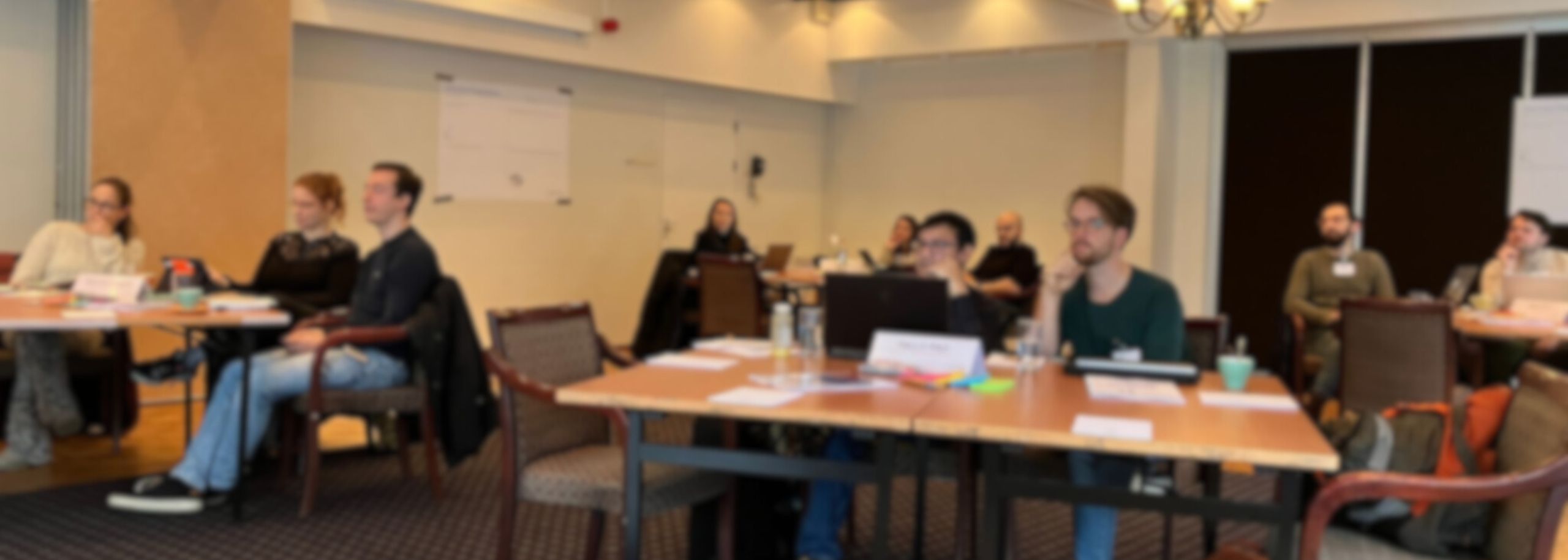Welcome to ‘Drijfveren’. In this recurring segment, scientists share what motivates them to go against the tide and develop animal-free alternatives. This time, it’s the turn of the research teams participating in the Proefdiervrij Venture Challenge 2024.
This year, we’re hosting the fourth edition of the Proefdiervrij Venture Challenge. Four teams with a scientific breakthrough in the life sciences under their belt are preparing their breakthroughs with business professionals to bring them to market. On behalf of the participating teams, Indi, Bas, Kerensa, and Elena explain what drives them to conduct animal-free research.
Indi Joore, hello R&D: “Research must transition to animal-free”
“Animals have long carried a heavy burden in research for drug development,” says Indi. “And yet, research in animals often does not translate well to humans. As far as we’re concerned, that leaves room for only one conclusion: research must transition to animal-free.”
Faster, more efficient, and animal-free
The model developed by Ibrahim and Indi’s team will assist in this endeavor. “Our hello is an organoid composed of the primary cell type in the liver. Current liver models often fail to predict the harmful effects of new drugs on humans, leading to prolonged drug development timelines and significant costs. Our hello models better represent the properties of human liver cells, making research faster, more efficient, and animal-free.”
Better for animals = better for patients
Ibrahim and Indi anticipate replacing a significant number of animals. “Every year, 6.5 million animals such as rats, mice, and even primates are used in drug development. By demonstrating which drugs are toxic in early research stages using our hellos, fewer animal experiments will be needed in later stages.”
And according to Indi, that’s not only good news for animals. “Our product helps drug developers bring medicines to market faster. That’s also beneficial for patients.” During the Proefdiervrij Venture Challenge, Indi hopes to meet their first customers. “So we can work towards developing a final product that can best assist drug developers.”
Bas Evers, NephroClear: “We need to seek win-win”
According to Bas from NephroClear, there is still plenty of room for improvement in science that has a positive impact on society and animal welfare. “We need to seek that win-win. That means working on innovative research methods that don’t require animal testing, without jeopardizing patient safety.”
A chip with human kidney cells
Bas and his team developed a 3D kidney-on-a-chip model. “Our model is based on human kidney cells and better mimics the human kidney than the animals currently used.” This innovation helps researchers bring much-needed medicines to market faster and more effectively, without conducting animal experiments.
Taking it to the next level
The team developed the model in collaboration with various companies and research institutes, such as TNO, Utrecht University, Novartis, AZAR Innovations, and Cell4Pharma. Because the results of this collaborative project were promising, the researchers decided to participate in the Proefdiervrij Venture Challenge. “We want to further develop and commercialize our model. The challenge is an opportunity to elevate our ideas to the next level.”
Text continues under post

